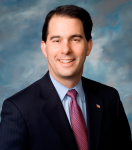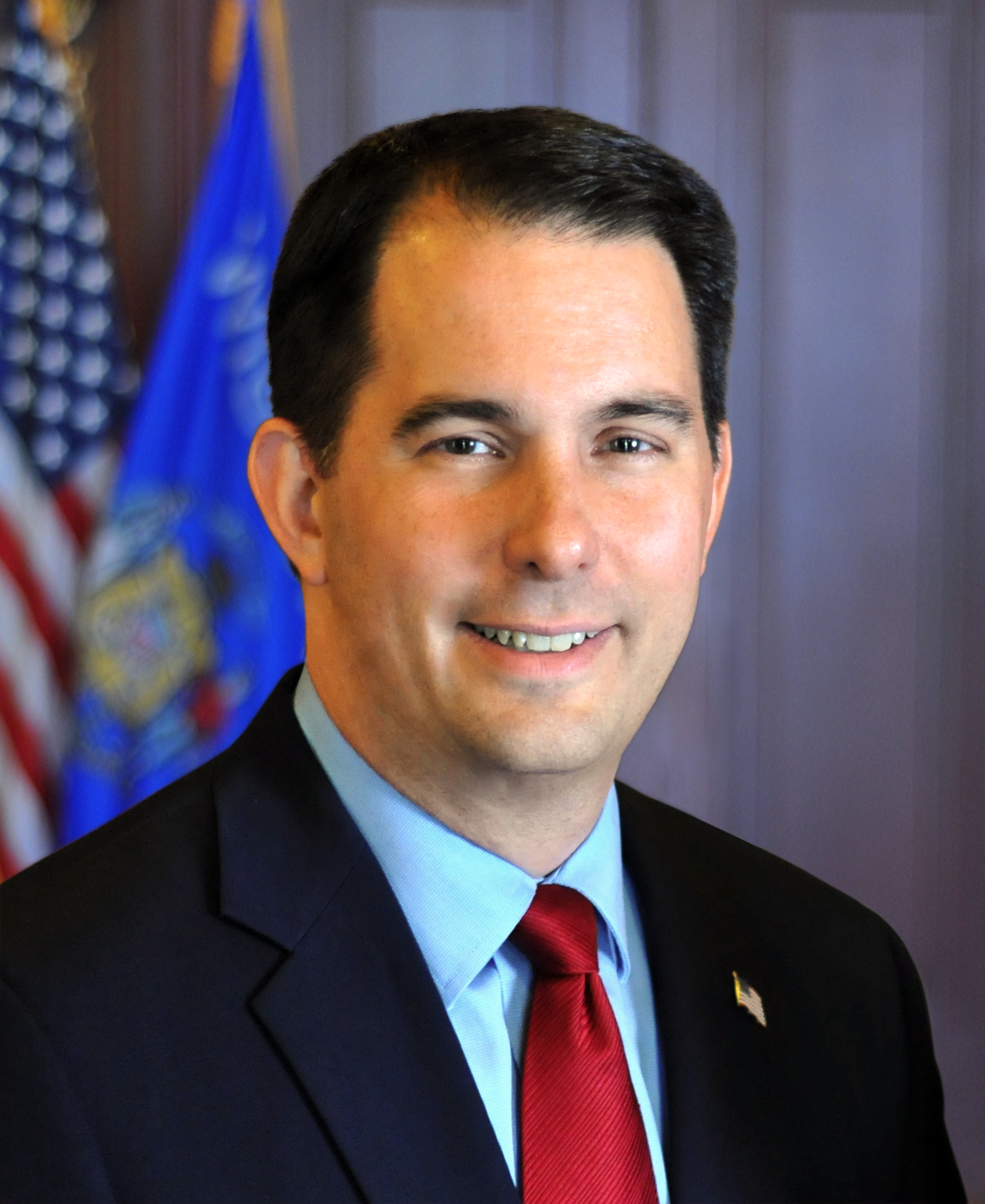Governor Walker Takes Additional Action to Fight Opioid Crisis
Wisconsin continues to lead the way forward
![Pills by Tom Varco (Own work) [CC BY-SA 3.0 (http://creativecommons.org/licenses/by-sa/3.0)], via Wikimedia Commons.](https://urbanmilwaukee.com/wp-content/uploads/2016/11/1024px-Lexapro_pills.jpg)
Pills by Tom Varco (Own work) [CC BY-SA 3.0 (http://creativecommons.org/licenses/by-sa/3.0)], via Wikimedia Commons.
“Wisconsin is a national leader in addressing the opioid crisis, as we’ve signed 28 bipartisan bills into law so far,” said Governor Scott Walker. “But there’s more work to be done: too many Wisconsin families feel the painful effects of this crisis every day. Through the guidance and recommendations of the Task Force, we’ve created reforms that will open the door to the best treatment outcomes for patients and their families.”
The prevalence of opioid misuse and abuse throughout Wisconsin, and the rest of the country, is at a dangerous level, and the ramifications are tragic and wide-ranging. According to the Department of Health Services (DHS), in 2016, 827 people died in Wisconsin of opioid overdose deaths caused by heroin, or prescription drugs, or both. From 2000 to 2016, the number of deaths in Wisconsin due to prescription opioids increased 600 percent, from 81 to 568 in 2016. Heroin overdose deaths increased 12 times, from 28 deaths in 2000 to 371 deaths in 2016.
The state of Wisconsin has taken numerous important steps in recent years to address the public health crisis of opioid abuse. Governor Walker signed the Heroin, Opiate Prevention and Education (HOPE) legislative package into law in April 2014, which among other reforms provides immunity to people contacting authorities for help for someone suffering an overdose and increases funding for substance abuse treatment providers. In September 2016, Governor Walker issued Executive Order #214 creating the Task Force on Opioid Abuse to thoroughly study the opioid crisis and plan approaches to both restrict access to dangerous opioids and increase access to substance abuse treatment. To date, 28 bipartisan bills have been signed into law to combat opioid abuse in Wisconsin.
In addition to the two executive orders Governor Walker will sign today, the Task Force co-chairs also presented the Governor with a report that provides additional recommendations for legislative action.
“I am thrilled to join Governor Walker today in Eau Claire to announce a number of executive orders aimed at combatting the opioid epidemic in Wisconsin,” said State Representative John Nygren (R—Marinette), co-chair of the Governor’s Task Force on Opioid Abuse. “Today is the culmination of months of hard work: a collaboration of industry experts, health care professionals and the recovery community have led to these monumental recommendations. I look forward to continuing to work with Governor Walker as we take historic step towards increasing access to treatment and care to our most vulnerable.”
Executive Order #273 instructs multiple state agencies to adopt the Task Force on Opioid Abuse co-chairs’ recommendations to improve awareness and prevention practices relating to opioids:
- DHS will work to improve the efficiency of care for ex-offenders, cooperate with law enforcement officials in developing training regarding opioid-abuse, convene a faith-based summit on opioids for faith-based officials, and develop a statewide standard for data submission on people seeking substance abuse treatment.
- The Department of Children and Families will revise its Child Protective Services Standards to better reflect the impact of substance abuse issues arising in child welfare cases.
- The State Patrol and Capitol Police will incorporate software involved in reporting and responding to overdose incidents.
Executive Order #274 creates the Governor’s Commission on Substance Abuse Treatment Delivery to study the “hub-and-spoke” delivery model for opioid treatment. The model relies on regional “hubs” that commit to serving as resource centers for addiction treatment and on “spokes” in communities that refer cases in and take referrals from the hubs. The model provides increased access to treatment and addiction care providers throughout the state, and has proved successful in improving treatment delivery in several other states.
Copies of Executive Orders #273 and #274 are attached. Also attached is the report from the Task Force co-chairs to the Governor.
NOTE: This press release was submitted to Urban Milwaukee and was not written by an Urban Milwaukee writer. While it is believed to be reliable, Urban Milwaukee does not guarantee its accuracy or completeness.
More about the Opioid Crisis
- Attorney General Kaul Announces Consent Judgment with Kroger Over Opioid Crisis - Wisconsin Department of Justice - Mar 21st, 2025
- Baldwin Votes to Strengthen Penalties, Step Up Enforcement Around Deadly Fentanyl - U.S. Sen. Tammy Baldwin - Mar 17th, 2025
- Wisconsin Communities Get Millions From Opioid Settlement as Deaths Decline - Evan Casey - Mar 1st, 2025
- MKE County: County Creates Easy Public Access To Overdose Data - Graham Kilmer - Feb 18th, 2025
- Milwaukee County Executive David Crowley and the Office of Emergency Management Launch New Overdose Dashboard - County Executive David Crowley - Feb 18th, 2025
- Fitzgerald Advances Legislation to Fight Opioid Epidemic - U.S. Rep. Scott Fitzgerald - Feb 6th, 2025
- Milwaukee Is Losing a Generation of Black Men To Drug Crisis - Edgar Mendez and Devin Blake - Jan 31st, 2025
- Milwaukee County’s Overdose Deaths Declined For Second Straight Year - Evan Casey - Jan 27th, 2025
- MKE County: United Community Center Awarded Drug Company Money For Addiction Treatment - Graham Kilmer - Jan 12th, 2025
- DHS Provides Update on Distribution of Latest Opioid Settlement Funds - Wisconsin Department of Health Services - Jan 9th, 2025
Read more about Opioid Crisis here
Mentioned in This Press Release
Recent Press Releases by Gov. Scott Walker
Governor Walker Orders Flags to Half-Staff Honoring Master Sergeant Jonathan Dunbar
Apr 13th, 2019 by Gov. Scott WalkerGovernor Scott Walker ordered flags to half-staff on Saturday, April 14, 2018.
Governor Walker Orders Flags to Half-Staff as a Mark of Respect for Captain Christopher Truman of the Lake Mills Fire Department
Jan 3rd, 2019 by Gov. Scott WalkerCaptain Truman died on December 31, 2018, while selflessly assisting a driver of a crashed vehicle on Highway 12 near the Yahara River Bridge in Monona, Wisconsin.
Governor Walker Appoints St. Croix County Judge and Ashland County District Attorney
Jan 2nd, 2019 by Gov. Scott WalkerGovernor Scott Walker today appointed Attorney Scott J. Nordstrand to serve as a judge on the St. Croix County Circuit Court and Attorney David Meany to the position of Ashland County District Attorney.























Too little too late Walker and Republicans!
Numerous studies including one done by the Albert Einstein School of Medicine in 2014 indicate that states that have medical cannabis programs have seen a 25 percent reduction in opioid related deaths compared to states like Wisconsin that don’t have such a program.
Yet, an overwhelming bipartisan majority of Wisconsinites support such a program.
Career politician Scott Walker and Republicans do not care. They are not listening to the people.
Perhaps they will listen once we dump all these charlatans and crypto-fascist enabling bums in the November 2018 elections?
DUMP WALKER!!! LEGALIZE CANNABIS!!!
We also need to get (and stay) tough on cannabis and marijuana. When people’s brains get altered from addiction, it’s difficult to restore the normal balance of neurotransmitters and receptors… once the switch is flipped with a lot of people, addiction is assured. Often stronger drugs are craved when the pleasure centers of the brain become dulled with abuse. Lives are ruined, and the children who have no choice are the ones who pay the real price.
Resist the false reality that comes with drugs. Just read Terry’s posts if you have any doubts. That’s the spiraling, repetitive, obsessed brain of an addict. I’ve seen it many times, and it’s sad more than anything.
Are you a medical professional WashCoRepub? What are your credentials here?
Terry: correct this is inaction past due. Committees and reports are helpful for understanding, but the problem is clearly known. Cannabis criminalisation causes many social problems and should be done away with. However I am not sure of the effect that will have on use of opiates…
WashCoRepub: Absolutely correct, drugs and addiction alter the brain and come with realities of their own. Still, ad hominem attacks are poor argument and overly emotional, childish.
PMD: what use is it to ask for badges on a website? What is sufficient proof? a pdf of ones diploma? positive yelp reviews?
@WashCoRepug, Sorry, more ad hominem attacks and personal insults will not help you, help republicans or help solve the opioid crisis. Stay on the subject! You sound like a rambling old drunkard.
I just finished skiing 30k in preparation for this years Birkiebeiner so pardon me if I’m a little wound up but I am certainly no “addict.” More like great looking, super healthy businessman. Come up to the Northwoods anytime and say hidey ho!
Your baseless insults and attacks don’t work with me!
DUMP WALKER 2018!!
DUMP ALL REPUBLICANS 2018!!
END CANNABIS PROHIBITION 2018!!